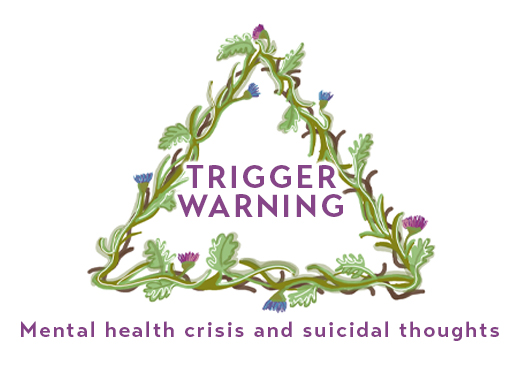4 Increasing awareness of mental health crises in adult learners and knowing how to respond appropriately
This section makes reference to topics which may be hard to read and may trigger unexpected emotional responses. There is reference to mental health crises where suicidal thoughts and behaviours might be present. Mental health crises can incur safeguarding situations. Do ensure you are pro-active in identifying safeguarding procedures for your learning environment. Bookmark a copy of the current safeguarding policy and procedures, and if you feel it would be helpful, print a hard copy. Regularly update your own safeguarding professional development, identifying any areas you might find beneficial to learn more about and take steps to learn more about these
Take care of yourself when reading this section and if you feel unable to read about these topics then you can move onto the next section, or to Section 5, which details further help and support, or come back to this section at a later stage, if appropriate.
In Section 1 you explored ways in which you can recognise mental health challenges and difficulties in adult learners, and how sometimes the indicators can be interpreted in different ways. This section includes various crisis situations, including panic attacks, self-harm and suicide. Now you will look at indications that a learner may be having a serious mental crisis, such as thoughts towards ending their own life, and how to best respond appropriately. This builds on your learning in Week 3 of how to facilitate mental health conversations and active listening, and you may wish to review Week 3 again. It is possible that mental health crises, or potentially suicidal situations, will not arise in your educator role but, if they should occur, then it is useful to be prepared and to know how best to respond.


